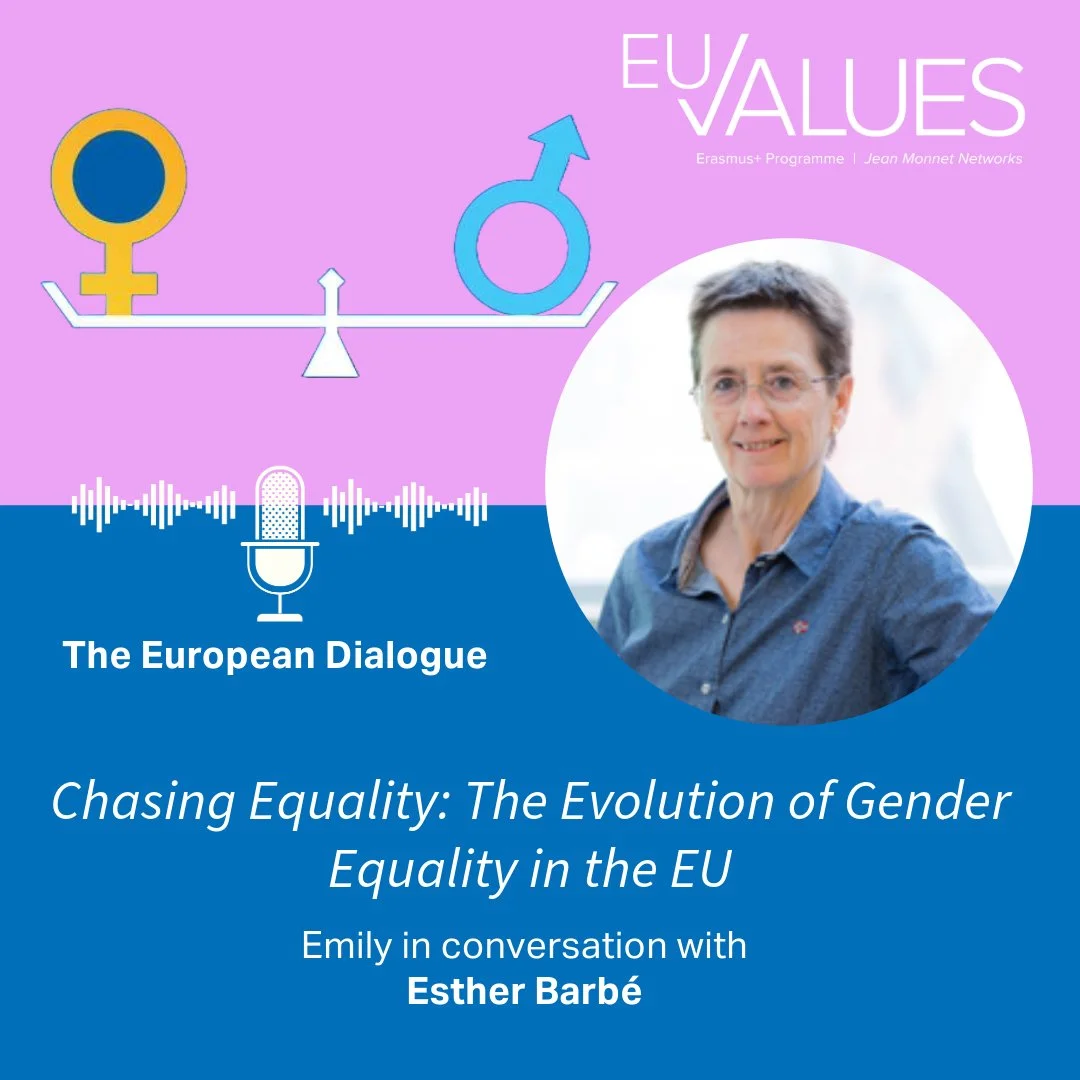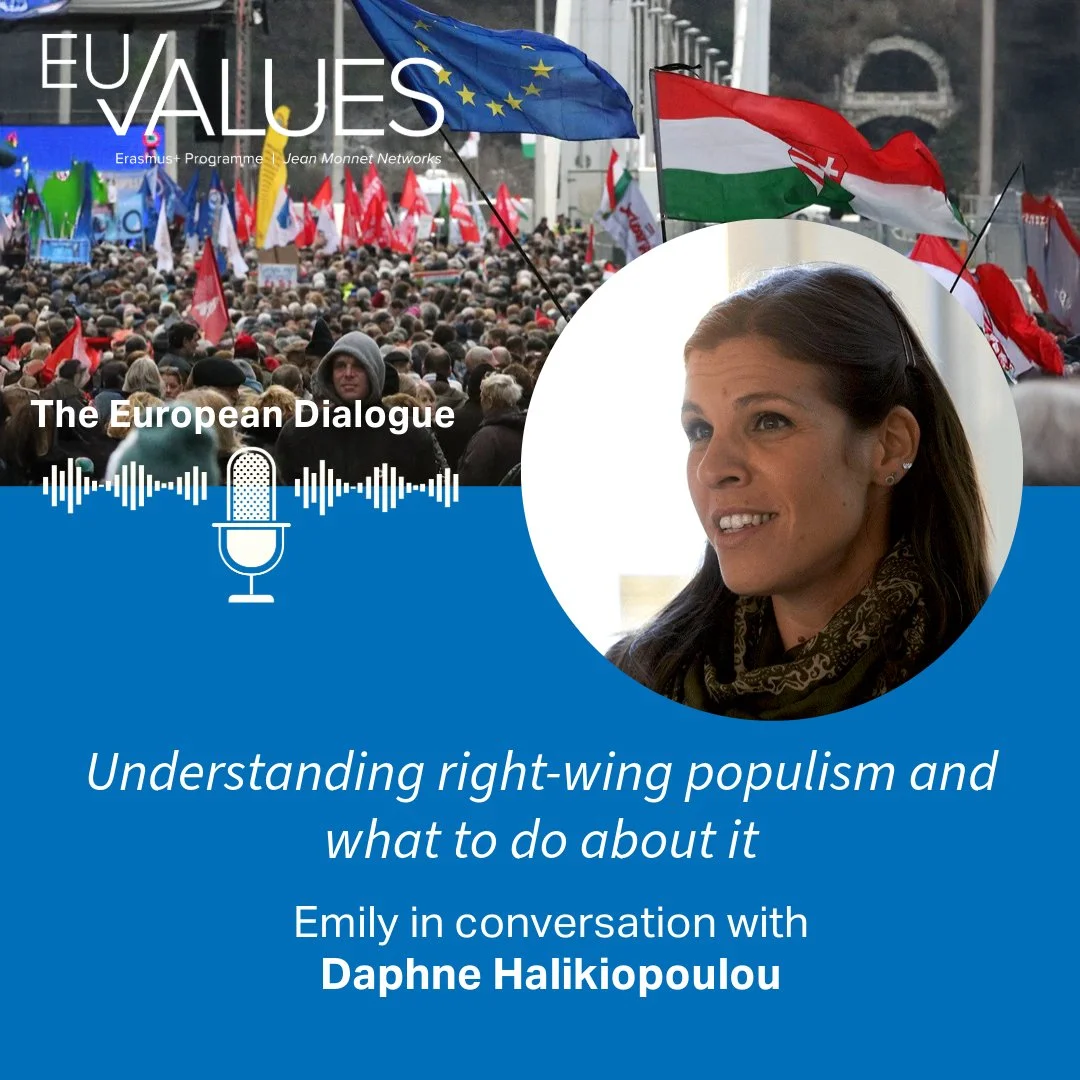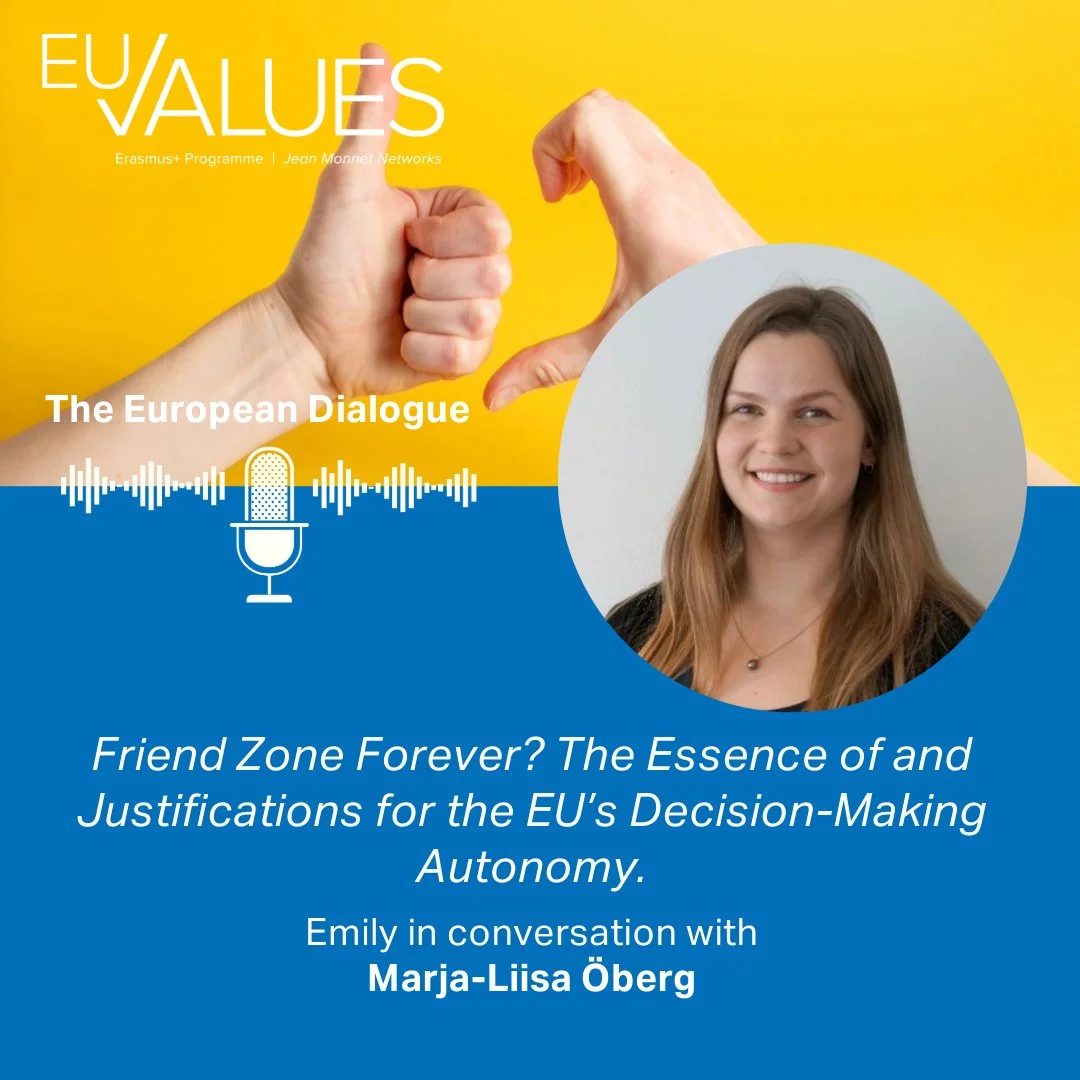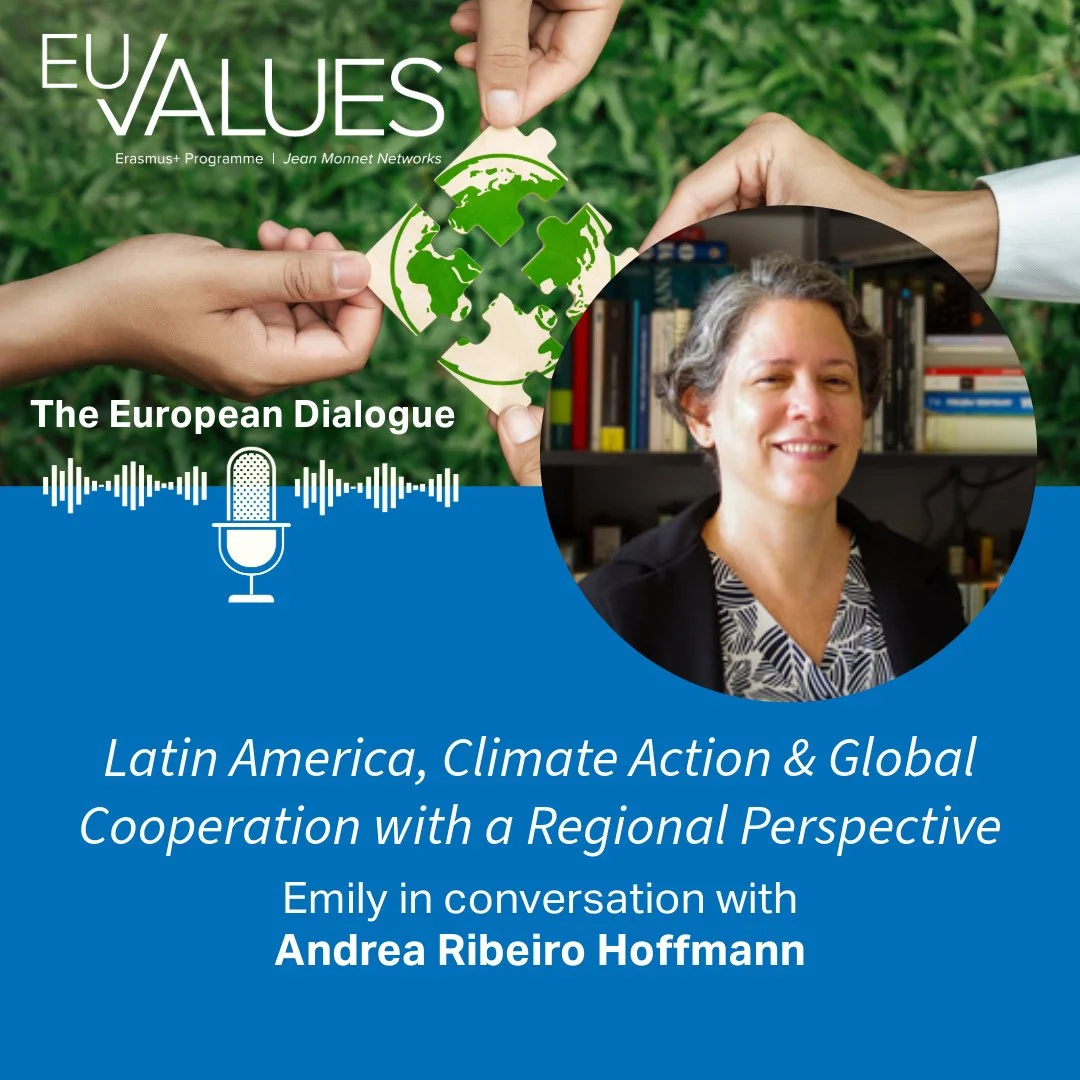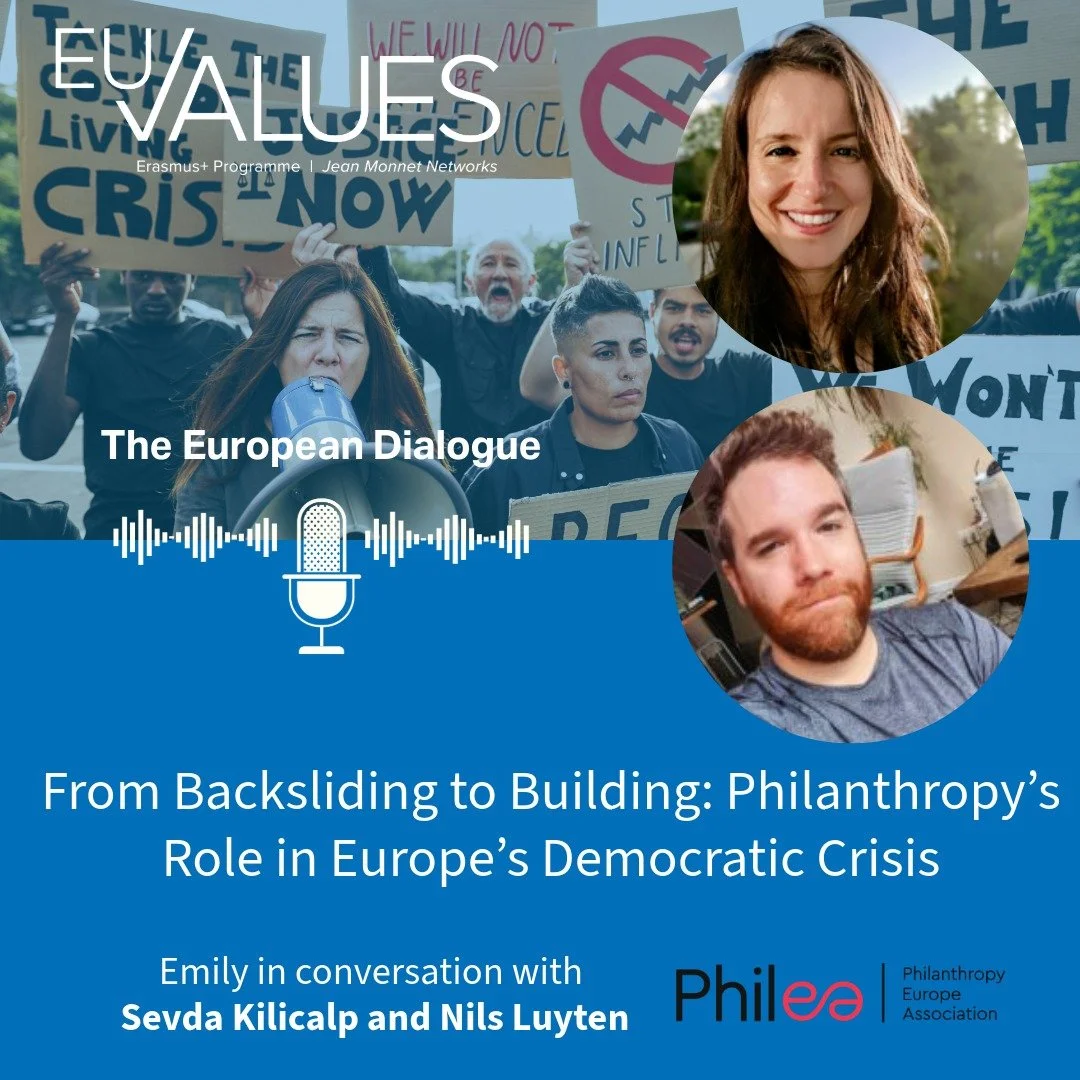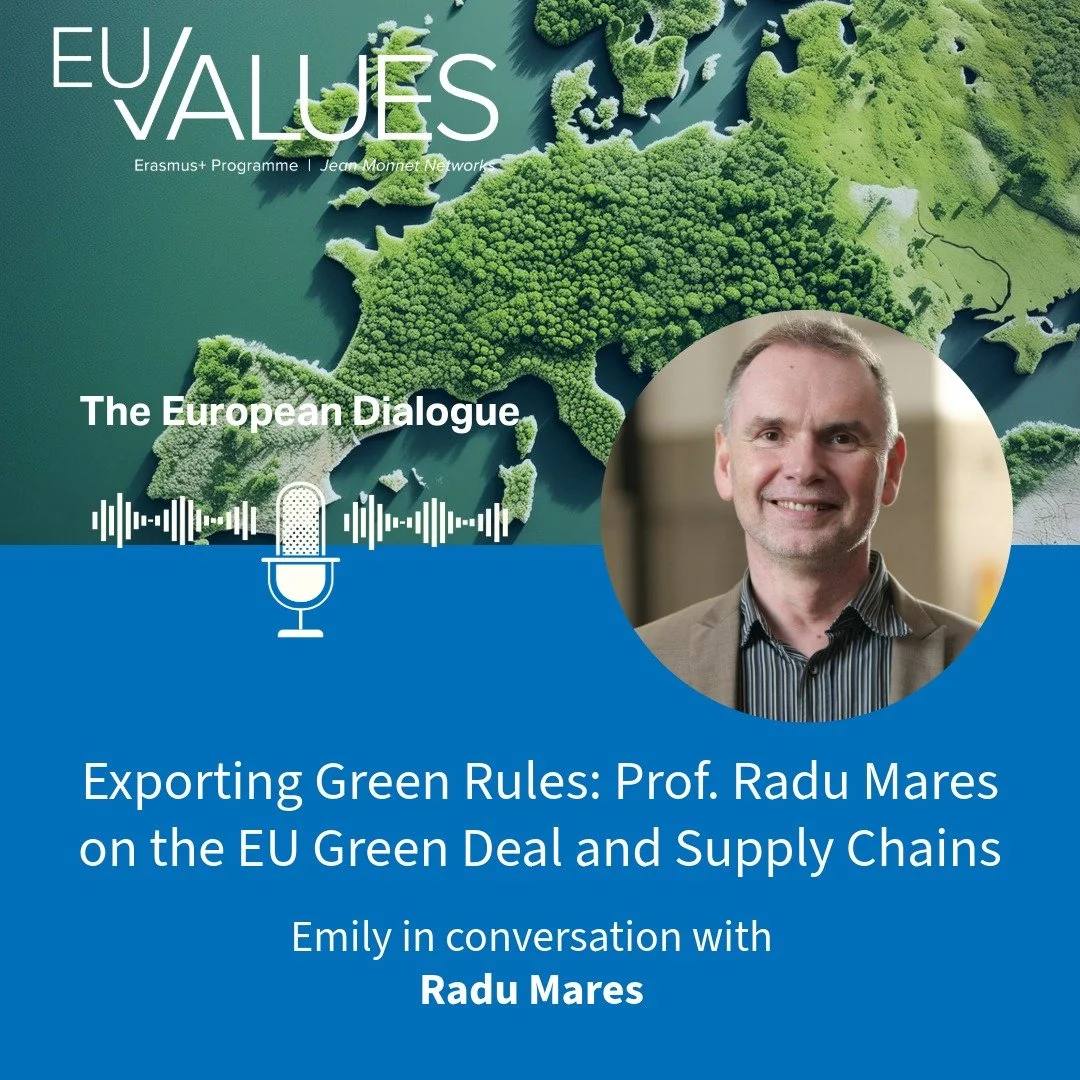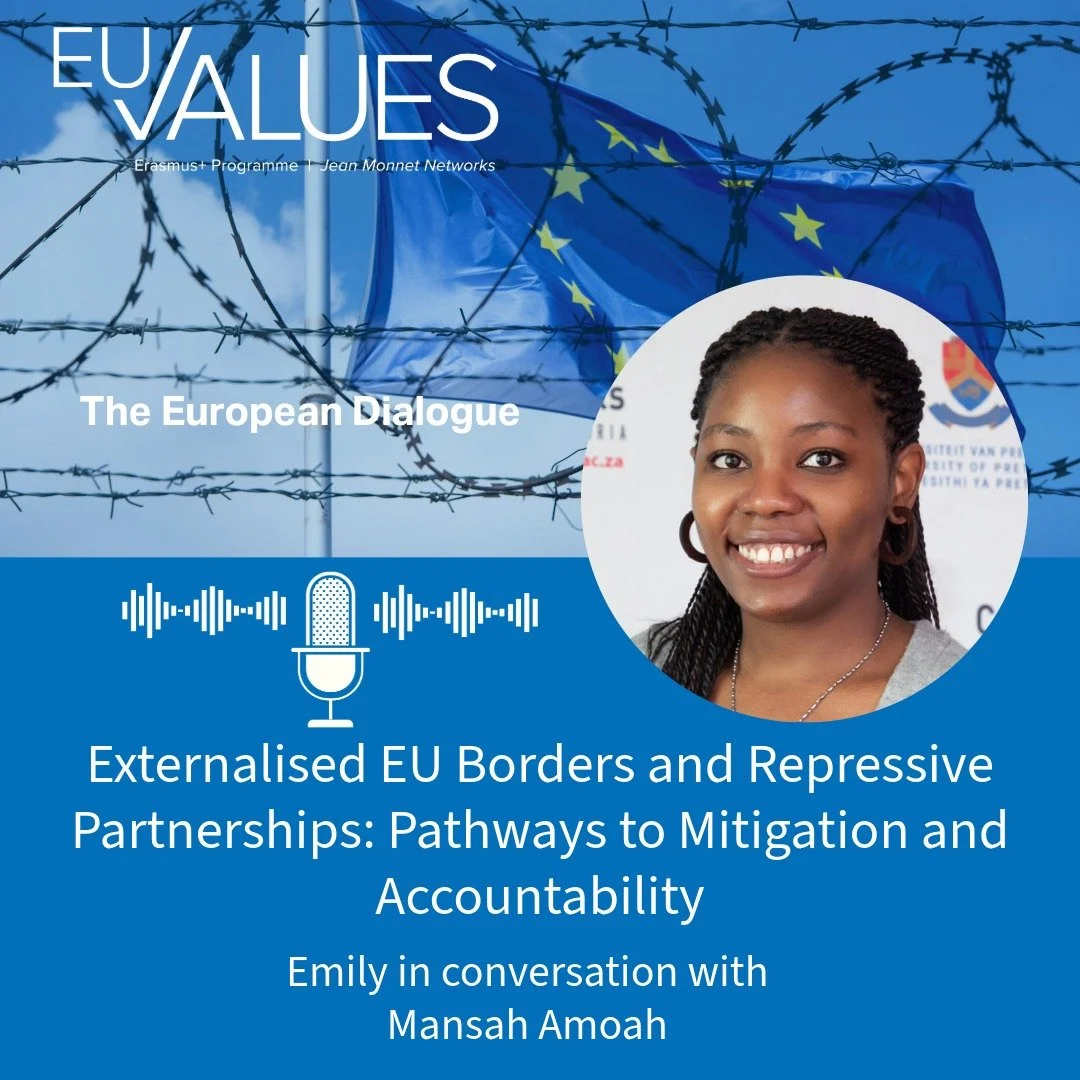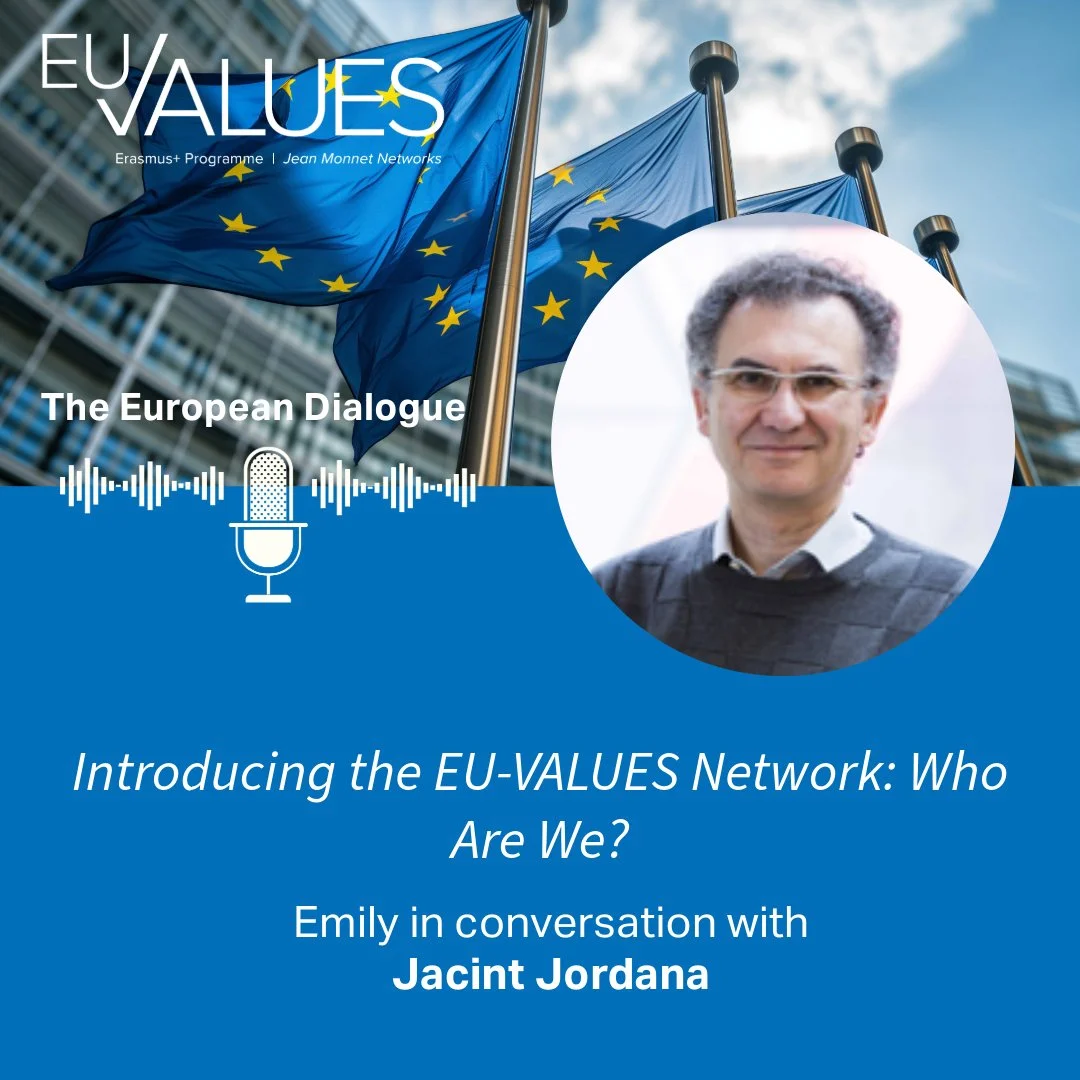
Expert insights on democracy, human rights, EU policies & global influence.
Tune in & stay informed.
Latest Episodes:
India, Europe, and the Ukraine War: Perceptions Beyond Brussels with Rahul Desarda
Between Sovereignty and Normative Power: Reassessing EU–ASEAN Relations with Sukmawani Bela Pertiwi
In this episode of The European Dialogue, we explore how the European Union’s response to Russia’s war against Ukraine is perceived beyond Europe — with a particular focus on India and the wider Global South. What does Europe’s value-based foreign policy look like from New Delhi? And what does this mean for the EU’s global credibility today?
We are joined by Rahul Desarda, Assistant Lecturer at Jindal Global Law School and Assistant Director of the Mahatma Gandhi Centre for Peace Studies, for a timely conversation recorded in Jakarta during the EU-VALUES International Conference hosted by BINUS University in December 2025. Drawing on his research in international law and peace studies, Rahul unpacks India’s position on the war in Ukraine and situates it within a broader foreign-policy approach shaped by strategic autonomy and multipolarity.
Key Topics Covered:
India’s position on Russia’s war against Ukraine
How Indian policy, media, and academic debates view EU sanctions and military assistance
What Global South perspectives reveal about Europe’s normative power
Comparisons with Southeast Asia and Sub-Saharan Africa
How the EU can strengthen the credibility of its value-based foreign policy and multilateral engagement
How has ASEAN evolved beyond economics, and what does this mean for democracy, human rights, and its partnership with the European Union?
In this episode of The European Dialogue, Sukmawani Bela Pertiwi unpacks the political development of ASEAN, its foundational principles of sovereignty and non-interference, and how these shape the region’s engagement with Europe.
Drawing on Bela’s extensive expertise in Southeast Asian studies and EU–ASEAN cooperation, this conversation explores the intersection of regionalism, values, and political diversity, and asks a crucial question: How much space does the EU really have to promote human rights in a region where sovereignty is fiercely protected?
Listen now to learn about:
The historical origins and evolution of ASEAN
How ASEAN approaches democracy and human rights across diverse political systems
The current state of EU–ASEAN relations — beyond trade and into politics
Why the EU’s “normative power” is often limited in Southeast Asia
The softer, hybrid forms of engagement the EU uses to support long-term human rights change.
Browse all episodes of the European Dialogue:



